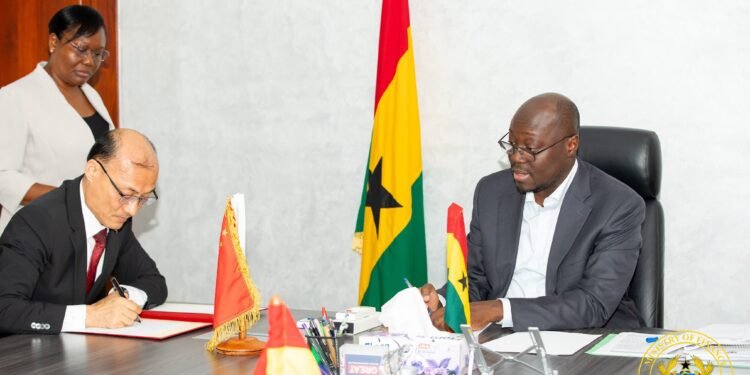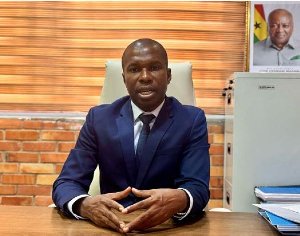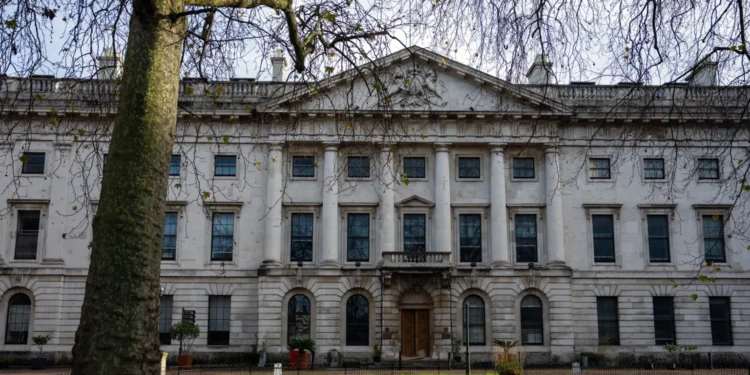The Criminal Court will tomorrow consider a plea agreement between the Office of the Special Prosecutor (OSP) and Thomas Andy Owusu, the second accused in the Republic v. Charles Bissue and Another case.
This development marks a significant turn in the OSP’s broader investigation into alleged corruption and public misconduct involving former public officials.
According to the Office of the Special Prosecutor, the plea agreement is expected to be reviewed by the court as part of the ongoing criminal proceedings against Owusu and his co-accused, Charles Bissue, who formerly served as Secretary to the Inter-Ministerial Committee on Illegal Mining.
Previously, the Supreme Court had ruled on a civil legal dispute between Charles Bissue and the OSP concerning the alleged existence of an arrest warrant. The decision has reignited legal scrutiny over how the OSP conducts its investigations and arrests.
“In 2023, Charles Bissue filed an application at the Human Rights Court, arguing that the OSP had acted unlawfully by obtaining a warrant for his arrest without following due process.
“However, the OSP denied ever acquiring such a warrant, insisting that it did not require one to lawfully arrest a suspect. The Kaneshie District Court, which Bissue claimed had issued the warrant, formally denied granting any such order”
OSP

The Attorney-General, appearing on behalf of the District Court, testified before the Human Rights Court that no warrant had been issued.
Bissue, for his part, was unable to produce any documentary evidence of the alleged warrant and instead cited an interview by the Special Prosecutor on Joy FM’s Newsfile programme as the basis of his belief.
Bissue’s legal team argued that statements made during the interview gave them the impression that a warrant had been issued against their client.
The Human Rights Court, however, rejected this line of argument and dismissed the case after confirming that no warrant existed. It further ruled that there was no legal basis to play the Newsfile interview or to permit the cross-examination of Bissue’s lawyer on the matter.
Unsatisfied with the Human Rights Court’s ruling, Bissue proceeded with the case to the Supreme Court, requesting a reversal of the decision. The apex court delivered its verdict today, instructing that the Newsfile interview be played in court so its content can be reviewed in full.
The Supreme Court’s ruling effectively reopens the matter at the Human Rights Court.
According to the Supreme Court, the cross-examination of Bissue’s lawyer should be allowed as part of a complete and fair assessment of the arguments presented. This directive clears the path for the Human Rights Court to conduct a more “comprehensive examination of the circumstances surrounding Bissue’s claims.”

The OSP, which maintains that no warrant was issued and that its actions have been lawful throughout, will now have the opportunity to challenge Bissue’s assertions directly in court.
“At no point was an arrest warrant issued for Mr. Bissue. The statements made in the interview do not constitute legal grounds for any such conclusion”
OSP
This ruling is likely to influence the interpretation of public comments by officials in ongoing or pending investigations, particularly those aired in the media. It also opens the door for scrutiny of how perceived signals from state officials can be interpreted as legal intent or action.
With the Human Rights Court poised to reassess the issue and the Criminal Court set to review the plea deal involving Thomas Andy Owusu, both the civil and criminal strands of the high-profile case are advancing simultaneously.
Observers anticipate that the outcomes of these proceedings will have lasting implications on the public’s trust in prosecutorial procedures.
READ MORE: Gaza Humanitarian Foundation Appoints Pro-Israel Evangelical Leader As New Chief























